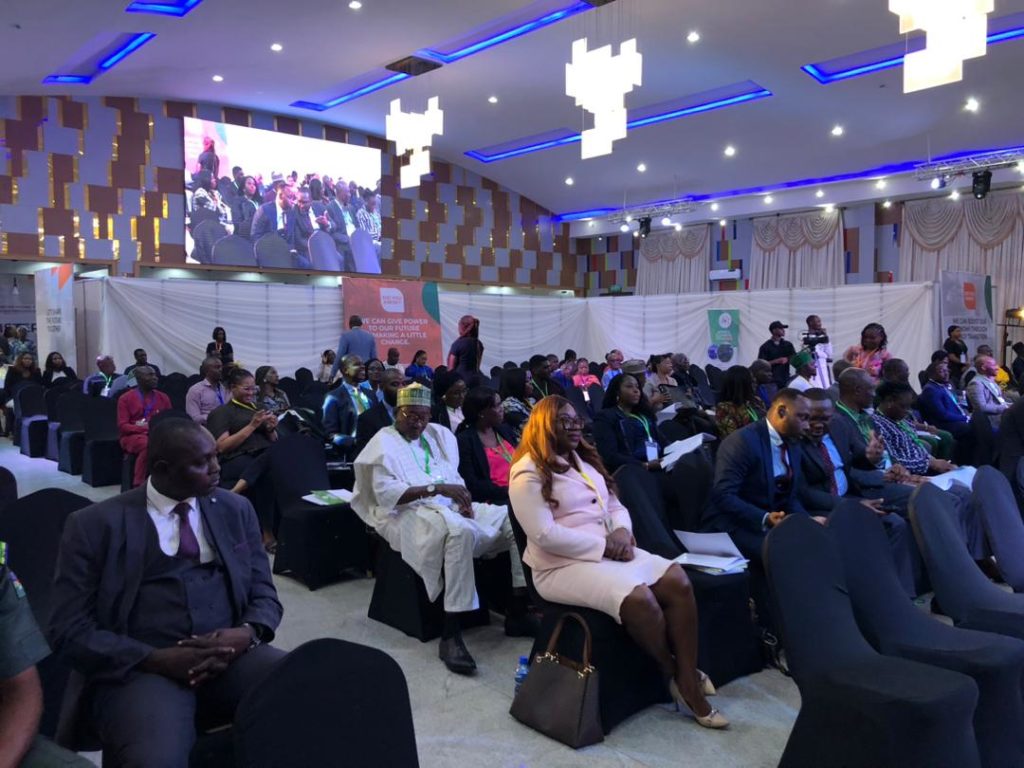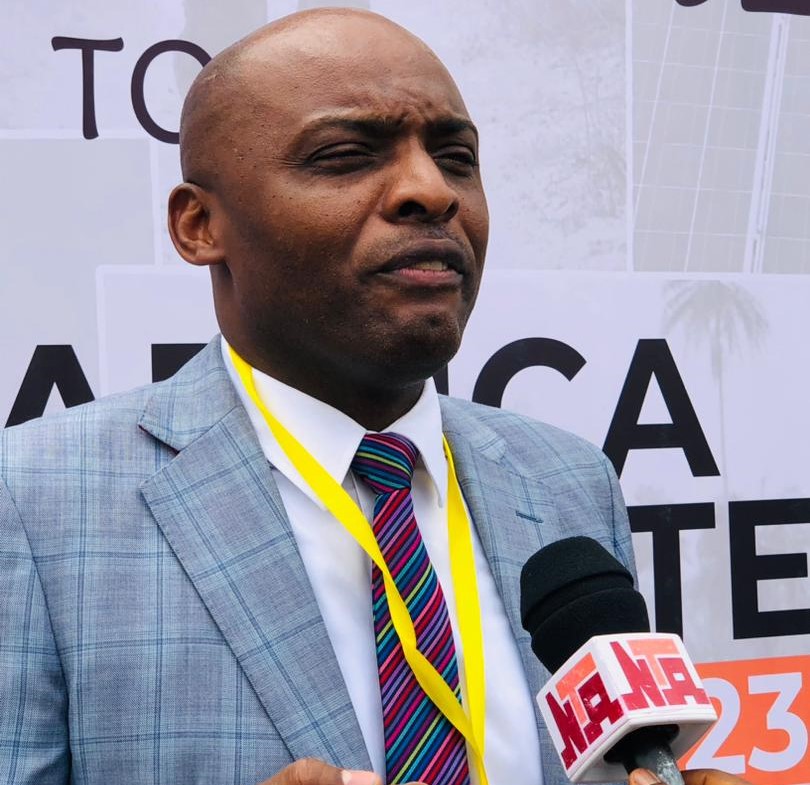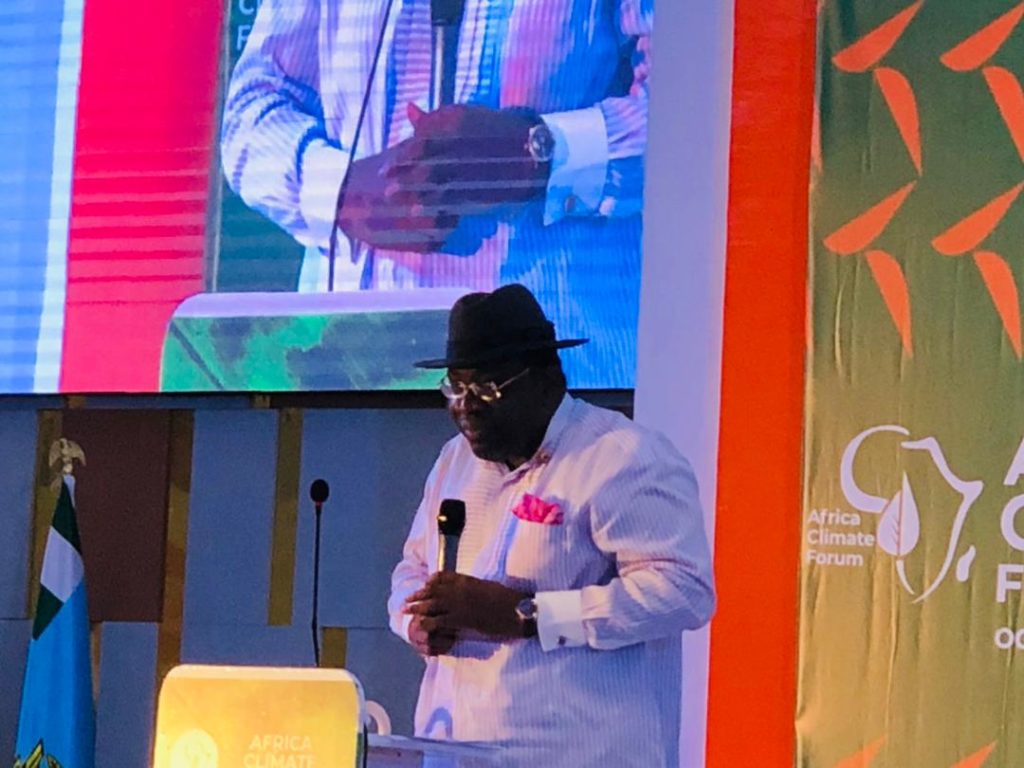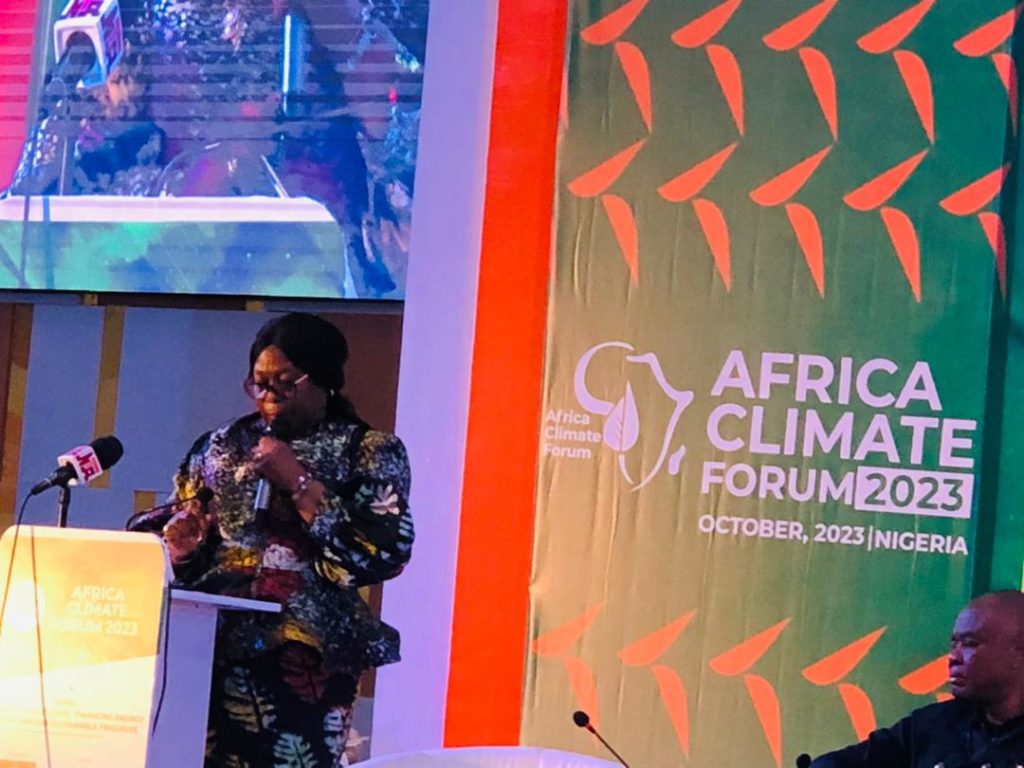Africa Climate Forum: Energy stakeholders meet in Abuja to strengthen efforts for sustainable energy financing

By Nfor Hanson Nchanji, on special assignment in Abuja
The global shift from fossil fuels to cleaner and more sustainable sources of energy, such as renewables (solar, wind, hydro), nuclear power, and improved energy efficiency is becoming an urgent need. It’s driven by concerns about climate change, energy security, and environmental sustainability. This transition involves changes in energy production, distribution, and consumption, as well as advancements in technology and policy to reduce greenhouse gas emissions and mitigate the impacts of climate change.
However, the energy transition process requires that certain topics be addressed for its success- African Stakeholders have identified that financing plays a huge role in achieving this feat. Financing the energy transition for sustainable progress is crucial for addressing climate change and achieving a more sustainable future.
It is against this backdrop and financial need that the Global Centre for Law, Business and Economy, organized a two-day event on “Powering the Future: Financing Energy Transition for Sustainable Development.”

A cross-section of stakeholders and participants who attended day one of the Africa Climate Forum, held in Abuja, Nigeria- CNA picture
Held on October 10-11, 2023, in Abuja, the Federal Capital Territory of Nigeria, the event pulled Ambassadors, Vice Chancellor, other Diplomats, Members of Government, the Peoples’s Representatives, and Stakeholders in the Energy sector.
Speaking during this maiden edition, the Convener and Director General of the Global Centre for Law, Business, and Economy, Dr. George Ngwangu, said they chose the financing theme because of the strong relations between energy and development; energy drives industrialization, sports, and human development and attainment of UN SDGs
He noted that the Energy transition has not only become center of government discourse in Africa, but it is an existential problem in the world and if this transition is not handled properly, the African continent will be under threat.

Director General of the Global Centre for Law, Business, and Economy, Dr. George Nwangwu, speaking to the media after the opening ceremony of Africa Climate Forum, held in Abuja, Nigeria- CNA picture
Dr. Nwangwu urged the private sector to assemble and map out ways to promote energy transition in Africa, because they are the main drivers of the energy transition process.
Statistics show that 890 million people in sub–Saharan Africa rely on traditional fuels for cooking, while energy access 600 million people in sub–Saharan Africa with 53 percent living without electricity. Sub-Saharan Africa bears adverse consequences mostly because of global climate change. Africa alone will need more than 200 million USD annually to meet transition needs, Dr. Ngwangwu revealed.
While looking at the Cop28 summit as a short-term goal of the meeting, the Convener said the Kenya resolutions of the Africa Climate Summit, should be implemented https://naturekenya.org/2023/09/28/africa-climate-summit-summary/
One of the declarations is that Africa has the potential and ambition to be a vital opponent for global solutions to climate change, with about 40 percent of world renewable energy resources but investments coming into Africa is 60 billion USD of 3 trillion expected.

An exhibition stand of AssetBow Limited, a fire safety company operating in Nigeria-CNA pictures
Keynote speakers agreed that to achieve energy transition with substantial finances in Africa, key strategies, and considerations such as public and private sector investment, green bonds, Carbon pricing, multilateral development banks, local initiatives, education and awareness, international collaboration, and partnership, regulatory framework, innovation, and research must be taken into account.
The Governments can play a significant role by allocating public funds to support renewable energy projects, energy-efficient infrastructure, and research and development in clean technologies. The Chairman of Nigeria’s Senate Committee on Ecology and Climate Change, Senator Seriake Dickson, lamented that too much dependence on fossil fuel has contributed to global warming, air pollution, geopolitical and local conflicts- Adding that it is a collective responsibility for stakeholders to engage in the energy transition and financing.
“The government will continue to play a central role in the endeavor.”

Chairman, Senate Committee on Climate Change in Nigeria, Senator Seriake Dickson, delivering a keynote address–CNA picture
Senator Seriake also recommended promoting public-private partnerships, incentives and subsidies, carbon pricing, copying from what others have done successfully in green bonds, tech and innovations, education and creating awareness, national cohesive policy of renewable energy moving forward.
His committee is willing to collaborate with all stakeholders on anything needed to regulate the framework that will underpin finances and work on possible new legislation to stabilize the sector’s quest for finances.
On his part, the Director General of the National Council on Climate Change, Dr. Salisu Dahiru, said, “Nigeria’s energy transition commitment is robust, timely, inclusive and sustainable.”

The Director General of the National Council on Climate Change, (Nigeria) Dr. Salisu Dahiru, giving a keynote address-CNA picture
This is boosted by solid climate policies, finances, and partnerships that have created jobs and alternative sources of energy for the people of Nigeria, he added. Dr. Dahiru said they entered an MoU with Nigeria Sovereign Investment Authority, NSIA, and INFRACOP to source and fund in-house and offshore projects. NSIA late last year launched a 50 million USD investment into renewable energy, while INFRACOP has a capital based on 800 million Naira to help improve infrastructure and the power sector.
The representative of the Minister for Environment, Dr. Abiola from the Department of Climate Change at the Federal Ministry of Environment, said there are better days ahead because Nigeria is already in the lead to deliver on its national commitment to global climate change plans.

Dr. Abiola from the Department of Climate Change at the Federal Ministry of Environment-CNA pictures
“Financial investments, partnerships, collaborations, tech, capacity building, development, and support can actually push this forward.” She assured. Nigeria’s transition plan is to deliver Nigeria’s SDGs by 2030 and 2060, this will help to lift people out of poverty, by bringing modern energy services to the population, and boosting transport, industry, and other sectors.
Stakeholders also discussed the energy transition landscape in Africa, financing Gas as a transitional fuel, financing mechanisms and institutions, budgeting for the transition, what Africa requires, unlocking investment in renewable energy, and innovations in renewable energy technologies, among others.




